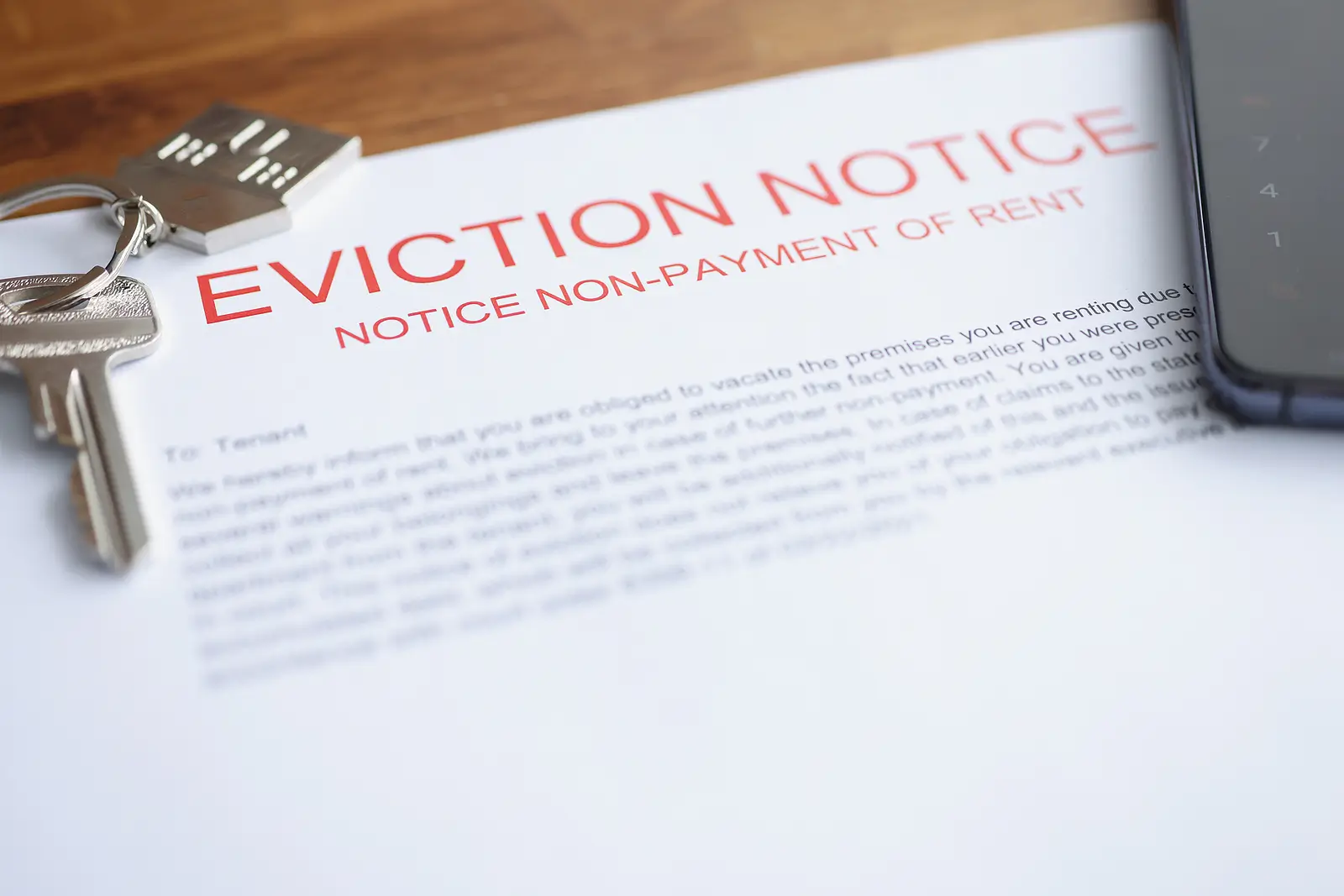Nothing throws off a landlord’s plans faster than missed rent. One month it’s late, the next it doesn’t show up at all, and suddenly your income is on shaky ground. In Denver, this isn’t just an inconvenience, it can quickly turn into a serious financial setback. Do you wait and hope your tenant pays? Do you start the eviction process? Or do you risk making a mistake that could cost you even more in court?
Eviction for nonpayment is never simple, but understanding how Colorado law works gives you the upper hand. The process has strict rules, and following them step by step is the key to protecting both your property and your peace of mind.
Here are the key points Denver landlords should understand to handle eviction for nonpayment of rent effectively.
Colorado Law on Rent Nonpayment
In Denver, tenants must pay rent on the date stated in their lease. If they fail to do so, the landlord can begin the eviction process. Colorado law, under Colo. Rev. Stat. § 13-40-104(1)(d), requires landlords to give tenants a written “notice to pay rent or quit” before filing in court.
Most landlords must give tenants 10 days to pay or move out. In some cases, called “exempt residential agreements,” only 5 days are required. This exemption applies when the landlord owns five or fewer single-family homes and the lease clearly includes the exemption clause. The notice must state the amount owed and the deadline to pay. If the tenant pays during that time, the eviction stops. If they do not, the landlord can proceed in court.
Filing for Eviction in Court
Once the notice period ends without payment, the landlord can file a complaint in court. This filing must include the lease, proof of notice, and the amount owed. The court will then schedule a hearing. Tenants are allowed to appear and present their side, so documentation is key.
Court Hearings and Outcomes
At the hearing, the judge reviews evidence from both parties. If the landlord shows that the notice and filing were done properly, the judge may issue an order for possession. This order allows the sheriff to remove the tenant if they still refuse to leave.
Role of the Sheriff
Only the sheriff can enforce an eviction order in Denver. Landlords cannot lock out tenants, change the locks, or shut off utilities on their own. Doing so risks legal consequences. Following the correct process keeps landlords protected.
Avoiding Common Mistakes
Simple errors can cause costly delays in the eviction process. Landlords should be careful to:
- Avoid filing before the notice period ends
- Use the correct type of notice with accurate details
- Keep thorough records of rent payments and tenant communication
- Document how and when the notice was served
- Seek legal guidance if unsure about the process
Taking these steps helps prevent dismissal in court and keeps the eviction process moving forward.
Considering Alternatives
Eviction is costly and stressful. Some landlords prefer to offer payment plans to tenants. Others agree to let tenants leave voluntarily to avoid a drawn-out court process. Exploring these options may save time and money.
Professional Support for Landlords
For Denver landlords, managing evictions along with daily property tasks can feel overwhelming. A professional property management company can take on the legal and administrative burden.
Some ways a property management company can help include:
- Serving accurate notices on time
- Preparing and filing court documents
- Coordinating with attorneys when needed
- Communicating directly with tenants
- Working with the sheriff to carry out eviction orders
- Keeping records organized for legal protection
This support helps landlords avoid costly mistakes and frees up time to focus on other priorities.
Turning Rent Challenges Into Smarter Solutions
Nonpayment of rent is one of the toughest parts of being a landlord. It disrupts income, adds stress, and forces you to make quick decisions that carry real consequences. But when you understand Colorado’s laws and take the right steps, you put yourself in control of the process instead of reacting to it.
Many Denver landlords find that having a property management partner changes the experience. Instead of juggling notices, deadlines, and court requirements, you can rely on experts who handle the details and keep everything compliant. It’s a practical way to reduce stress and protect your investment.
At Mavi Unlimited Property Management, we help Denver landlords take the guesswork out of rent collection and eviction laws.
Connect with us today to learn how Mavi Unlimited Property Management makes rent collection and tenant management easier.
More Resources:
- Should You Rent or Sell? How to Make the Right Decision
- How to Set the Right Rental Price for Your Denver Rental Property
- How to Attract Quality Tenants to Your Denver Rental Property


